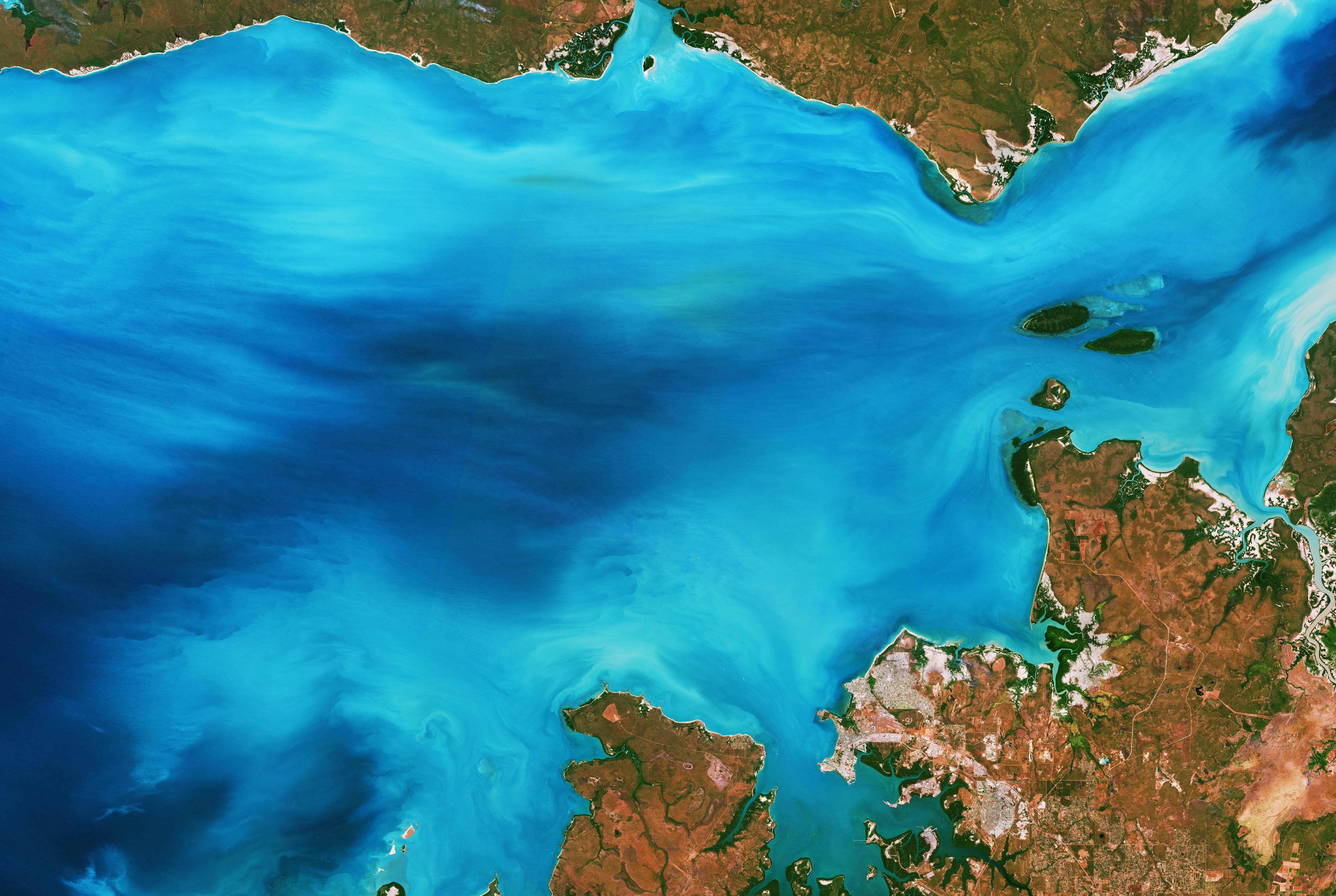- Hogar /
- Sobre /
- Mercados/
- Soluciones digitales/
- Perspectivas /
- Carreras /
Protecting our oceans with European EO data

Oceans are vital ecosystems that sustain life on our planet, yet they face growing threats from climate change, pollution, and human activities. The United Nations Decade of Ocean Science for Sustainable Development (2021–2030), also known as the ‘Ocean Decade,’ is a global initiative designed to promote collaborative efforts in ocean science to ensure sustainable management of marine resources. European Earth Observation (EO) data plays a crucial role in this mission by providing essential insights for scientists, policymakers, and industry professionals.
The Role of European EO Data in Tackling Ocean Challenges
As the ocean spans multiple countries, effective protection strategies require cross-border collaboration. This is where satellite missions such as the Copernicus Sentinel program play a key role. By collecting data on various ocean parameters, these satellites help monitor ocean health globally, even in remote areas.
However, with an increasing number of data providers, users often face challenges in navigating the diverse marine data landscape. To address this issue, EUMETSAT, in partnership with the Copernicus Marine Service (CMEMS), EMODnet, the Early Career Ocean Professionals (ECOP) Programme, and the UN Ocean Decade Coordination Office for Ocean Data Sharing, has launched a webinar series to help users explore and utilize European marine data effectively.
1. European Marine Data Providers and Their Contributions
The three key data providers behind this initiative—EUMETSAT, CMEMS, and EMODnet—each bring valuable expertise in marine data collection and distribution:
- EUMETSAT operates essential marine satellite missions, providing near real-time data and long-term datasets on ocean altimetry, ocean colour, and sea surface temperature.
- CMEMS delivers ocean models and products, offering insights into ocean currents, temperature, salinity, and sea level to support climate research, environmental protection, and maritime operations.
- EMODnet, funded by the European Commission’s Directorate-General for Maritime Affairs and Fisheries (DG MARE), democratizes access to marine data by aggregating information from academia, in situ observations, and citizen science. Its data supports sectors such as aquaculture, renewable energy, and marine policymaking.
Additionally, the ECOP Programme supports early-career professionals in the marine sector by providing networking opportunities, training, and access to EO data.
2. The EU Ocean Data Webinar Series
The webinar series follows a user-driven approach, responding to the needs and challenges faced by marine data users.
- The first webinar (June 2024) introduced the wide array of available marine datasets and collected feedback from participants on topics of interest for future sessions.
- The second webinar (October 2024) provided in-depth presentations on how EO and in situ data can help address three key UN Ocean Decade challenges: marine pollution, the protection of marine biodiversity, and climate change adaptation.
The third webinar, scheduled for 15 January 2025 at 14:30 CET, will explore how EO, in situ, and modelled marine data can support three additional UN Ocean Decade challenges:
- Sustainably feeding the global population
- Supporting the blue economy
- Strengthening coastal and community resilience to oceanic hazards
Registrations are still open, and users of all experience levels are encouraged to join.

Looking Ahead: UN Ocean Conference 2025
Beyond the webinar series, a major event in 2025 will bring together global ocean stakeholders. The third UN Ocean Conference (UNOC3), co-organized by France and Costa Rica, will take place in Nice, France, from 9–13 June 2025.
With support from the European Commission (DG DEFIS and DG MARE), Mercator Ocean International will host a large booth showcasing Europe’s commitment to sustainable ocean management and the role of EO data in tackling marine challenges. This conference presents an important opportunity to advance discussions on protecting our oceans and to reinforce Europe’s leadership in leveraging EO data for a more sustainable future.